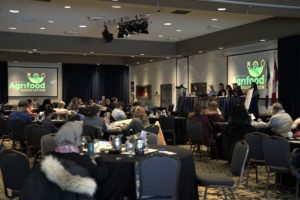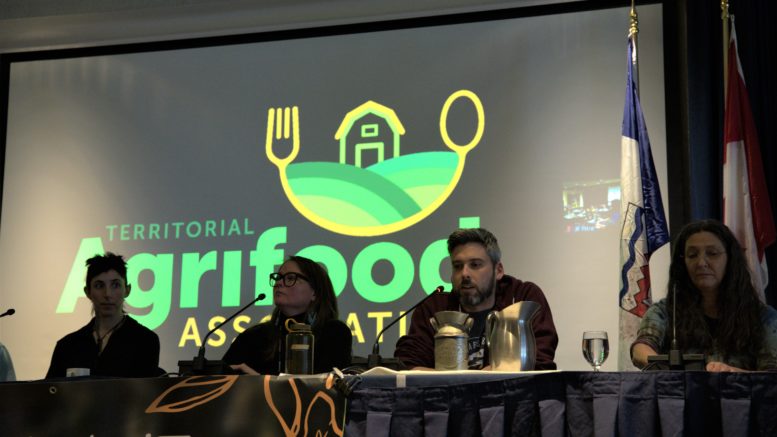Agriculture in the NWT is more than just an idea: It’s already happening, even in small communities.
Those were some of the messages from the first-ever Grow NWT agrifood conference in Yellowknife last week.
The conference, hosted by the newly-formed Territorial Agrifood Association (TA), united growers and interested residents from across the territory for two days of discussion, workshops, and of course, food.
“I still meet people who go, ‘Oh, no, it doesn’t happen here,”’ says TAA executive director Janet Dean. “It’s happening, and it’s been happening for a while.”
Agriculture is nothing new to the territory. As PhD candidate and agricultural researcher Mindy Price explained in her presentation, agriculture in the territory has been practiced since the time of missionaries and fur traders, but was considered to not be economically viable by the mid-20th century.
Despite that, many local success stories were on display at the conference.
Brian Wade is the director of the Inuvialuit Community Economic Development Organization. He explained with pride how the Inuvialuit Settlement Region already has its own food processing plant, which has provided more than 40,000 pounds of country food to households across the region since opening in late 2021.
“We’re creating an economy and we’re addressing food security with this project,” he said.
Elsewhere in the territory, a new kind of greenhouse may soon be appearing: Red Deer-based Green Iglu provides infrastructure, including greenhouses and growing systems, that allows remote and northern communities to produce their own food, even in harsh winter conditions.
Green Iglu’s executive director Ray Solotki, who also presented at the conference, told CKLB the company is in talks with Whatì, Enterprise and Tuktuyaaqtuuq (Tuktoyaktuk) to have Green Iglu’s technology in those communities.
Still, challenges persist. Many grocery stores don’t want local produce on their shelves. Under current Canadian Food Inspection Agency rules, wild harvested game can’t be packaged and sold, only traded and bartered. And there are obvious challenges posed by community isolation and the harsh northern climate.
Kevin Wallington wears many hats in the territory’s agricultural industry, including the CEO of North Star Agriculture and General Manager of the Northwest Territories Egg Board.
He says what the industry needs is for all of its isolated supporters to come together and share ideas. “Obviously, we get isolated in our own communities and our own sectors,” he says. “And so sometimes you get tunnel vision. I think this is a really great opportunity to interact with people from all over.”
The TAA was formed in 2020 through a merger of the NWT Food Network and the Territorial Farmers Association.
Dean says she hopes the conference will be held at least bi-annually, if not annually.







